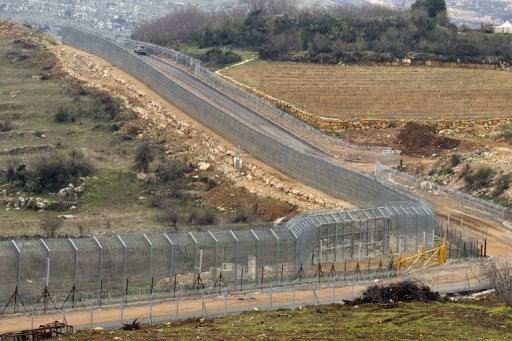A rock band sings about taking Berlin; politicians and the media threaten a nuclear attack. The war rhetoric in Russia is impossible to ignore. But there’s a different mood within Russian society.
The popular Russian rock band Va-Bank released a new music video on Wednesday. It’s called “And After Berlin” and is a cover version of the 1980s song “First We Take Manhattan,” by Canadian singer Leonard Cohen. The Russian text contains current political messages. International sanctions, Crimea and the Soviet dictator Josef Stalin are mentioned before the chorus comes: “First we take Manhattan, then we take Berlin.”
Since the annexation of Crimea, war and conquest fantasies have become commonplace in Russia. You hear them from politicians, journalists and pundits. Apocalyptic photomontages depicting a future war between Europe and the United States are making the rounds on social media. One such photo shows a Russian tank in a demolished Paris with the caption “Tank tours in Europe.”
The threat of nuclear weapons – something that Russians have previously tried to avoid – now surfaces regularly. March 16, 2014, is the day the taboo was broken. That’s the day that a referendum seen internationally as illegitimate was held on Ukraine’s Crimean Peninsula, which was occupied by Russian troops. “Russia is the only country in the world that is truly capable of turning the USA into a heap of radioactive ash,” star moderator Dmitri Kisseljov said on state television.
Since then, prominent personalities have continued to swing the nuclear club. Right-wing populist Vladimir Shirinovsky, the deputy parliamentary chairman, has threatened to reduce first Kyiv, then Berlin, then Washington to dust. Most recently, he was toying with the idea of throwing a nuclear bomb into the Black Sea near Istanbul. Then the Turkish city would be washed away by a giant wave, Shirinovsky reasoned during an appearance before parliament on Tuesday.
Sociologist Denis Volkov, of the renowned Levada research center, says such comments are a means of testing public opinion. “It would be much more serious, if Putin were to say in a documentary film that Russia was prepared to use atomic weapons in the Crimea dispute,” he told DW.
War in the air
The “expectation of war” is hanging in the air these days, the Moscow-based journalist and blogger Alexander Plushev told DW. He said the media were mainly responsible for spreading such sentiment.
Turkey’s downing of a Russian military jet on its border with Syria at the end of November appears to have heated up Russia’s war rhetoric even more. Moscow’s Novaya Gazeta has warned of the growing risk of an actual nuclear standoff. “Those who would call for the deployment of nuclear weapons out of revenge, and not as a deterrent, are the real criminals,” the paper, which is known for being critical of the Kremlin, wrote on Thursday. It called on readers to sign an online petition for a law to make publicly threatening the use of nuclear weapons a punishable act. Such a petition first needs to gain 100,000 signatures for the government to consider it.
Even some journalists loyal to the Kremlin have shown concern. At the end of November, Ulyana Skoibeda of the tabloid Komsomolskaya Pravda questioned the jingoism in the wake of the Turkey conflict. “We’re hearing the word ‘war’ at every turn,” the normally effusive Putin supporter wrote, asking: “Do we really need this war?” Her column disappeared from the paper’s website a few hours after it was published.
Most Russians against war
Skoibeda simply said what most Russians think. According to opinion polls, one of the biggest worries plaguing Russian citizens is the threat of war. The Levada Center’s latest surveys show that 59 percent expect a war between Russia and the terrorist militia “Islamic State” in the coming decade in Syria. Every fourth Russian (28 percent) believes in an armed conflict with NATO, the Levada Center found in November. “Most people don’t want a war,” said sociologist Volkov. “But around 20 percent are the so-called hawks, who support radical, aggressive strategies against Ukraine, the West, the United States, and Turkey.” He added that their number appears to be stable.
Jens Siegert, head of the Moscow office of the Heinrich Böll Foundation, told DW that war fantasies are not that widespread in Russia. “If you were to ask, do you want a war, most people would say no, we are a peaceful people. What they do say, is that war is forced on them from outside,” the political scientist said. Siegert added that state propaganda has been fostering an image of Russia as a “besieged fortress” for more than a decade. In addition, there has been a “desensitization.” Violence in international relations is portrayed in Russian media as the norm, not the exception, said Siegert.
“State-controlled television is hyping the already hysterical mood to such a degree that it’s eventually going to backfire,” the blogger Plushev warned. In such cases, the government barely has a chance to change course quickly without disappointing its “enthusiastic followers.” Russia won’t be able to end the conflict with Turkey without “deeply humiliating its opponent,” he said.
That’s the direction Putin took in his speech on the state of the nation on Thursday. Addressing the behavior of the Turkish leadership over the downing of the Russian jet, Putin said: “They’ll regret it.”
“We know what we have to do,” the Russian leader said, without giving specific details.




